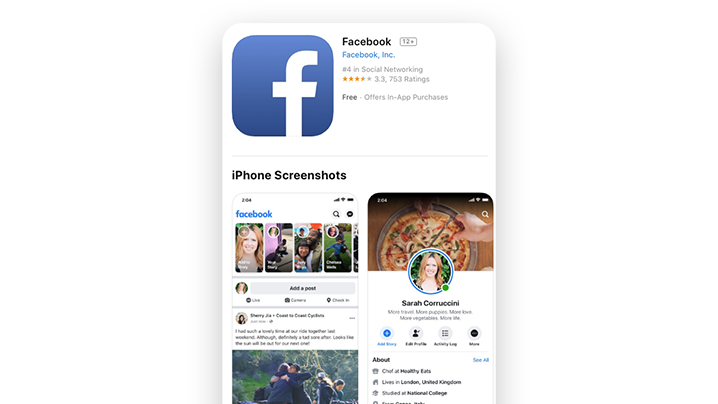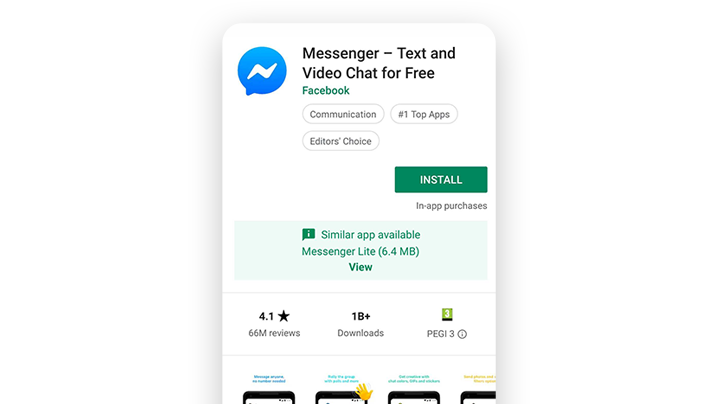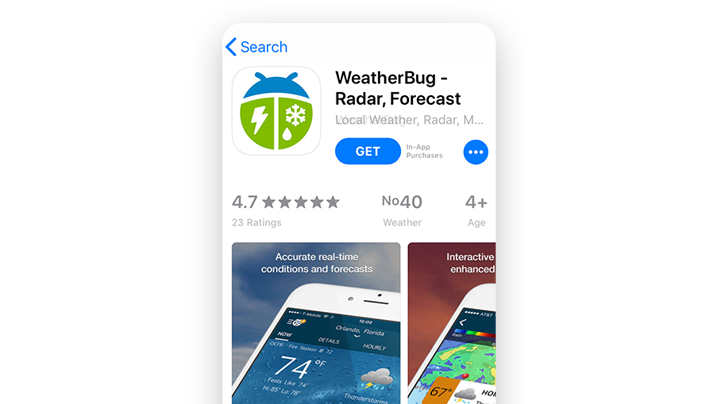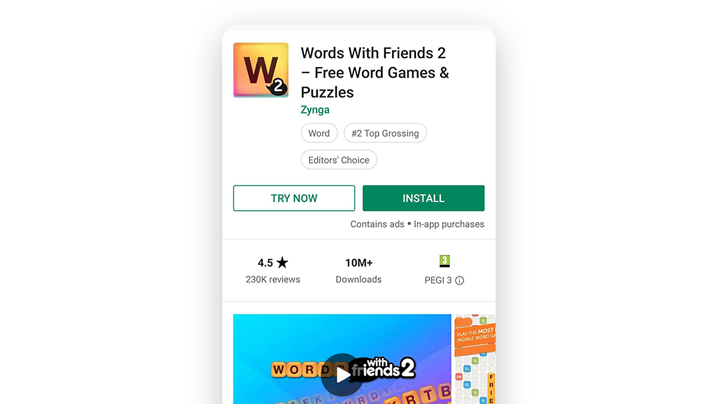The 5 worst apps for your privacy
Your phone knows almost all there is to know about you. Where you work and live, where you travel, who you’re friends with, what you write in your emails and messages. The same is true for many of the apps you use, but some are nosier than others. The ones on this list are the worst apps for your privacy.
Contents
1. Facebook

Facebook is probably the worst app for privacy, as it tracks you across all its apps and websites. It even tracks you when you log off Facebook. The app requires almost every permission there is, including:
- Your contacts, call logs, and text messages
- Your camera and microphone
- Your internal storage
- Your Wi-Fi
- Your location
In essence, Facebook wants full control of your device and claims it’s necessary for the app’s functionality.
It knows when you log in and how long you spend on the platform. It tracks where you go, what you buy, what you browse.
Facebook collects all this information to serve you targeted ads. What’s more, the company has leaked its user data through numerous breaches. Facebook has proven time and again that your personal data isn’t safe in their hands.
2. Messenger

Facebook Messenger is also one of the worst apps for privacy , as it does not use end-to-end encryption. The messaging app probably stores your private messages in plain text on their servers. If that’s the case, they can be reached by any employee with login credentials.
Mark Zuckerberg has admitted that the messaging app automatically scans all the links and images you send to your friends. When the algorithm finds them suspicious, moderators read your messages and block them if they do not meet company policy.
It is true that these measures stop fake news and unlawful content from spreading. However, you cannot trust Facebook to use your data only for good. Remember that Facebook:
- Has always valued growth over user privacy
- Has been breached numerous times
- Stored logins in plain text
- Logged text messages and phone calls without informing users about this practice
- Asked users for email passwords to spam their contacts
How to quit Facebook
Since Facebook is the worst app for privacy, it’s a good idea to get rid of it. Log out, delete Facebook and Messenger apps and switch to a more secure messaging app.
That’s easier said than done. With 2.9 billion users on Facebook and 1.3 billion on Messenger, you’ll find most of your family members, friends, and coworkers on these apps. Encrypted messaging apps like Signal are far less popular, and there is no alternative social network as widely used as Facebook.
However, Facebook Messenger has the secret conversation mode, which automatically deletes messages after a certain time. While it’s not a bulletproof method to improve your security and privacy, it’s still better than nothing.
If you can’t shake the Facebook habit, simply delete the apps and use your mobile browser to scroll. It’s slightly less convenient, but this extra step gives you time to reflect: “Do I really want to check the news feed AGAIN?” It also makes sure the apps can’t snoop on your traffic and other apps.
Your messages will remain readable to Facebook, and your data will still be vulnerable to all security breaches to come, but Facebook will have a much harder time tracking you without their apps.
You can also get yourself a VPN to enhance your privacy and security. While a VPN cannot protect your data if you’re using an application like Facebook, it will stop your internet service provider (ISP) and other snoopers from spying on you.
Don’t let anyone stalk your data.
3. Weather apps

Your shiny new weather app wants to access your location. Sounds reasonable enough – it can’t tell the weather if it doesn’t know where you are.
But after you grant permission, the app tracks your location 24/7 and sells this data to advertisers, which can put your phone security and privacy at risk. Such apps are numerous, and they all sound the same:
- AccuWeather
- WeatherBug
- The Weather Channel App
And it’s not only the weather apps you need to worry about. It can be any app that provides local news or tells about events in your city or informs you about new restaurants worth visiting. Any of those may be trying to get your data for location-based advertising.
Weather apps will sell data on where you work, how you commute, who’s your physician, and what gym you frequent. There is no guarantee that your location data will be handled properly. It could be leaked, or sold further down the line. Image if someone from your area obtained your location data, even without your name.
How to check the weather without giving away your home address
Not all weather (or local news) apps are bad for your privacy, but to find the trustworthy ones, you’ll have to read the fine print.
Apps that sell your location are not honest about it. They hide this fact in thousand-word policy texts written in legalese. If you can’t bear reading the terms of service (few can), research them. Check the reviews and their reputation on the web.
One potential solution is to select your location on the app without giving it permission to track your location. This feature might not be readily apparent since they want you to let them track you, but it is likely available.
You can also check tomorrow’s weather on a browser, without relying on unsafe apps.
4. Words with Friends and other mobile multiplayer games

Multiplayer games are all about interaction and player engagement. You solve puzzles, level up, and have fun with friends and family.
However, games like Words with Friends collect an obscene amount of personal data, making them one of the worst apps for privacy.
Zynga, which created Words with Friends, the megahit FarmVille, and many other successful games, tracks and logs all kinds of personal data:
- first and last name
- username
- gender
- age and birthday
- contacts from the address book
- in-game purchases
- everything players post in the message boards
- the contents of chats and messages between players
- Facebook ID
- approximate physical location
- basically, any publicly available info they can find
They also use cookies, beacons, pixel tags, clear gifs, and device identifiers to track:
- IP addresses
- what computer or mobile device and OS players use to play their games
- MAC addresses
- browser type and language
All that because you wanted to play online scrabble.
Zynga is not unique in the mobile game market. A lot of developers track their player data and sell it to the highest bidder. If you’re lucky, the data is depersonalized, but it might not be.
How to make sure my game is not spying on me
If the app is free, the developer still needs to make money somehow. They do that by selling your data for targeted advertising.
Before downloading any app, check the permissions and see if you can run it without giving it any of the permissions it needs to track your data.
5. The next app you download
In 2014, it came to light that the NSA hacked the game Angry Birds and siphoned player data. The developer claims that the vulnerabilities in the app have been fixed.
In 2013, the Federal Trade Commission charged a popular flashlight app because it shared location data with third parties without user knowledge or consent.
What these cases show is that you cannot learn about the worst privacy apps from past incidents. When vulnerabilities become known, they are fixed. When scammy apps are found, they are blocked from Google Play and the App Store.
You need to worry about the vulnerabilities that haven’t yet been found. No one knows which app will be next to leak the data of millions.
How to stay safe: 5 suggestions
- Check the reviews. Your phone security and privacy is the most important thing – know what you’re downloading. Have a look at multiple sources to see if an app can be trusted with your private details.
- Pay attention to permissions. Be wary if an app asks for permissions it shouldn’t need to function. No flashlight app needs to know your location.
- Update the apps you use and delete the ones you don’t. Your phone probably has too many apps. Deleting the ones you don’t use will optimize your phone’s performance and protect you from potential vulnerabilities. Updating the ones you use will help keep them secure.
- Use a VPN. With a VPN app, every connection your device makes online will be encrypted, which includes your apps. When NordVPN is enabled on your Android or iOS, neither your ISP nor snoopers will be able to spy on your internet traffic.
